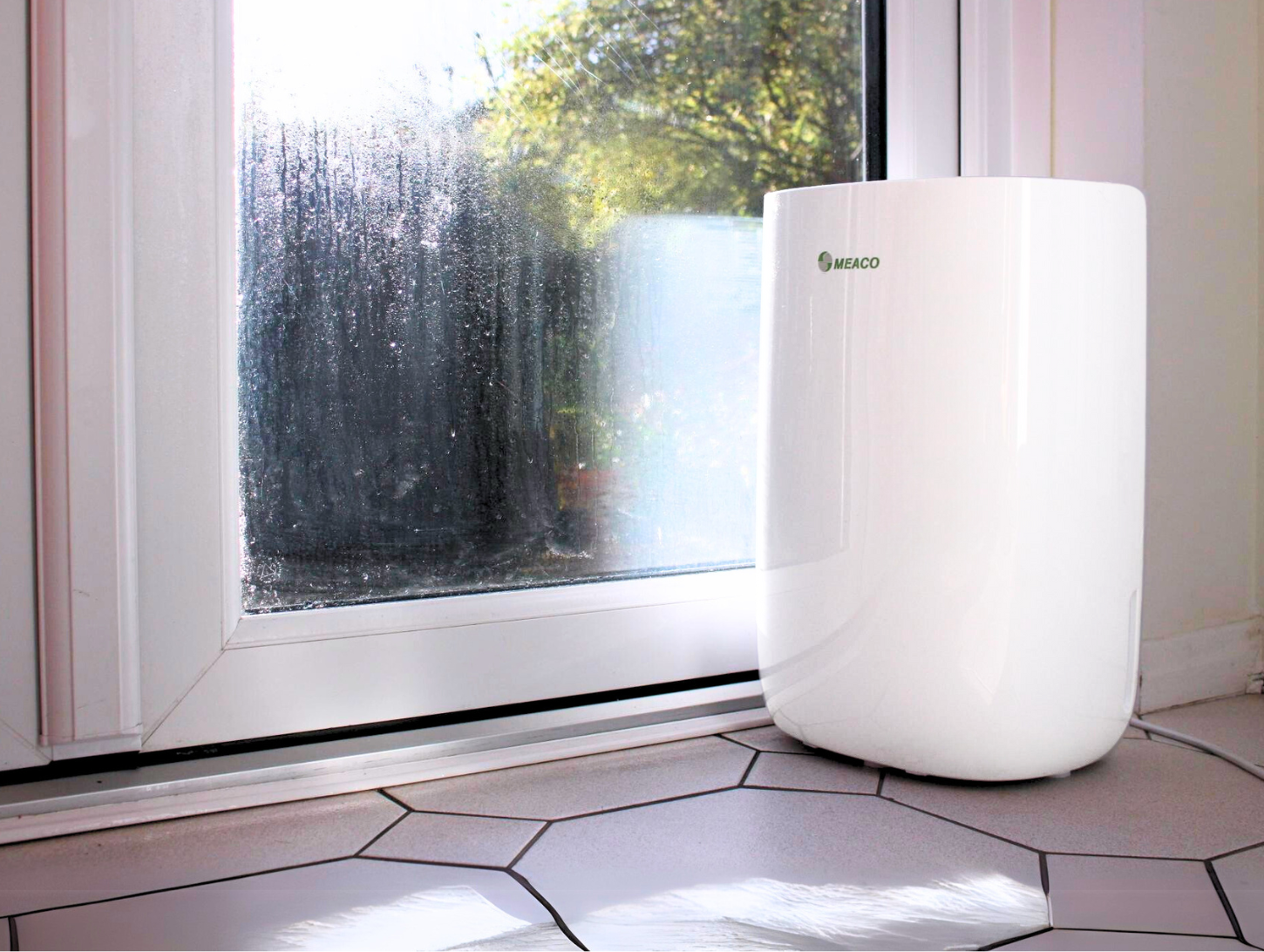
With the cold, there’s also condensation. When the temperature drops outside, generally below 5°C overnight, you’ll start seeing condensation on your windows. You may notice this most in the bedroom, kitchen, bathroom or conservatory, especially early in the morning. Stopping condensation is one of the biggest problems homeowners face.
So, how can you stop condensation? The two main approaches to ‘curing’ or ‘stopping’ condensation are either to open the windows or use a dehumidifier. Open the windows may give pretty instant results but we’re letting in the cold air and then paying to heat it back up. Dehumidifiers provide a fast, effective and cost-efficient way to manage condensation.
Opening windows to deal with condensation
You would probably expect me to recommend that you buy a dehumidifier. I am a dehumidifier manufacturer after all. But let’s look at the benefits of opening windows first.
In Germany, they call it “Stoßlüften”, meaning “shock ventilation” and they may have the right idea about things… When people worry about condensation or mould problems, the advice will often be to open the window. This is to improve ventilation.
However, in some older properties that are often quite ‘leaky’, we can see that condensation is rarely an issue. I mean that in properties with older windows, we don’t always see more condensation. These windows might let in some moisture and may not be fully draft-proof. However, condensation is about trapped moisture inside the house, not extra moisture coming in.
Opening windows can cure condensation – but do you want to let the cold in?
So why does ventilation help? Opening windows can stop condensation – but do you want to let the cold in?
First, what causes condensation on windows?
Essentially, condensation occurs when air meets a cold surface and forms water on that surface. And it’s all about the relationship between relative humidity and temperature. In most cases, the surface is the cold glass panes of your windows and the relative humidity is moisture within your home. It doesn’t matter how little moisture there is in the air – if the surface is cold enough, you will get condensation.
Your windows provide the perfect cold surface because they are in direct contact with the chilly outside. If you touch the window pane, you’ll feel the difference!
This is why my windows at home have been free of condensation for months. Now the temperature has dropped, I can suddenly see condensation. I doubt that the amount of moisture in the air in my home has increased. It is just that the surface temperature of the window is lower during a cold spell.
This is also why you’ll find double-glazed windows usually have less condensation than single-glazed ones. This is because the two panes form an insulated barrier. And as a result, the inside pane isn’t quite as cold and condensation is less likely to occur. Remember that double-glazing condensation can still happen, it’s just less frequent than single glazing. This does not mean your windows are broken but there are steps you can take to reduce it.
What is the science behind condensation: the relationship between humidity and temperature?
Condensation forming on cold surfaces happens because of the inverse relationship between temperature and relative humidity. As temperature falls, relative humidity increases and as temperatures increase, relative humidity falls. So if you heat air up, the relative humidity will decrease. This is the key to the reason why ventilation can help cure condensation.
So, there are two things helping to form condensation, the temperature of a cold surface (your windows) and relative humidity. Of these, which can we control in order to stop condensation?
Unless you have fancy heated windows, then the answer is relative humidity. You can do this in a few ways. Let’s start with opening the window.
Does opening the window stop condensation?
Ultimately, yes. You’ll quickly notice the condensation leaving the windows. The air in your home is full of moisture from cooking, bathing, showering, drying washing and even breathing. The air outside in winter will probably have a lower relative humidity. So when you open the windows, warm, damp air goes out and cold air comes in.
Condensation can build up easily on any cold surface, especially windows throughout winter.
But now your room is a lot colder and you don’t know whether the outside air has changed your room’s relative humidity.
Have we helped to reduce the condensation situation? The answer is still yes. If you’re having a hot shower and open the window a smidge, you can watch the condensation reduce dramatically.
It is also because we are not going to let the air stay cold. We will heat it up to a temperature that we are comfortable with.
Even if the air outside is freezing, I still want it to be about 20°C in my house but I’ve opened the window and let some of that cold air in. I will warm it up and I’ll turn the heating on.
And in the laws of science, increased temperature means decreased relative humidity. If we assume the incoming air is full of moisture, warming it up will reduce that relative humidity as well. Let’s say the incoming air has a relative humidity around 90%rh, increasing the temperature will reduce it down to something like 25%rh.
So, all is good! We have got rid of our warm damp air, replaced it with cold damp air and warmed it up. We now have warm dry air. There’s a cure for condensation.
Opening the windows will work and is an effective solution to condensation control.
But..
Think about what we have just done. We have heated the air, costing us money, and then we have thrown that heated air out of the window. It might have been easier to throw fivers into the street!
To replace it, we have introduced freezing cold air into our home and made ourselves feel very uncomfortable.
Now, we need to warm the cold air. This will help us feel comfortable again and lower the humidity. This costs more money in energy, and later in the day, we’ll have to do it all over again. In fact, ideally you will have to do this in every room in the house. You will certainly need to do it in the bathroom, kitchen and bedrooms at the very least.
Opening the windows does work but I am not a fan because of two reasons. One, it makes people feel uncomfortable. Secondly, there’s a huge hidden cost of reheating the fresh air coming in from outside. With energy bills skyrocketing it seems a real waste of money to keep on throwing the energy outside.
Is a dehumidifier a better way to stop or prevent condensation?
Yes, a dehumidifier is a superb way to manage relative humidity in your home and reduce condensation. Plus, a dehumidifier is the only way you’ll remove moisture. As we mentioned earlier: condensation occurs because of temperature and relative humidity. You are unlikely to control the temperature of your windows, but you can manage relative humidity with a dehumidifier. Making a dehumidifier an incredibly effective choice to prevent condensation.
Running a dehumidifier does of course have a cost to it. There is an initial price of the unit, and then there’s the electricity cost to run it.
But there is an important difference between the cost of running a dehumidifier and the cost of heating air.
MeacoDry ABC Dehumidifier extracting excess moisture and preventing condensation from occurring
- Some dehumidifiers create a little warmth while dehumidifying. Desiccant dehumidifiers create around 12°C which is ideal especially in garages and conservatories.
- If you’re opening the window and running the central heating, you’re potentially throwing hundreds of pounds away every year. The hot air often escapes through the window. You will just heat it up again later when you open another window.
- Finally, heating dry air is actually a lot cheaper than heating damp air. Read more: 7 Ways to Stay Warm, Save Money, and Delay Turning the Central Heating On
We use our dehumidifiers mainly in the winter when condensation is at its worst. It’s freezing outside which provides the perfect cold surface on your windows to condensate. And we are closing the windows and doors, trapping moisture in our home. This is the perfect recipe for condensation.
In the winter, it is cold and we need to heat our homes. The energy used by the dehumidifier is returned to the room that it is standing. And that energy is in the form of warmer air.
So the cost of running a dehumidifier is retained within your home. If you have a radiator within the same space as the dehumidifier, you can turn it off – helping to keep your energy bills down. So where is the cost of running the dehumidifier if you are benefiting from and enjoying the heat that it generates?
Read more: How much does it cost to run dehumidifier units? Less than you think!
How do deal with condensation in a conservatory
Condensation in conservatories is a hugely common problem for homeowners. It’s a room of windows, creating that perfect cold surface. It’s unheated so we’re not reducing the relative humidity by increasing temperature. And it’s just as likely as the rest of the house to contain moisture.
Both solutions work well for reducing condensation in these spaces: opening windows and running a dehumidifier. But if you want to proactively prevent condensation in a conservatory? My best recommendation is to manage your relative humidity with a desiccant dehumidifier.
Read more: How do I prevent condensation in a conservatory?
A dehumidifier is a fast, effective and cost-efficient way to stop condensation. Opening the windows may seem to be the easy – and free – solution, but it’s not quite as cheap as it looks!
We recommend…
- Compact and stylish dehumidifier
- Quiet Mark – from just 36dB
- Eliminates moisture – ideal for damp, mould and condensation
- Shop now
Meaco Low Energy Dehumidifiers
- Low cost to run – 4p / hour based on 24.50p / kWh
- Quiet Mark Award – up to 41 dB
- Tackles damp, mould and condensation
- Shop now
Meaco DD8L Desiccant Dehumidifier
- Superb at removing condensation from windows
- Desiccant dehumidifier
- Provides additional warmth & offers high performance
- Shop now
Browse all dehumidifiers.

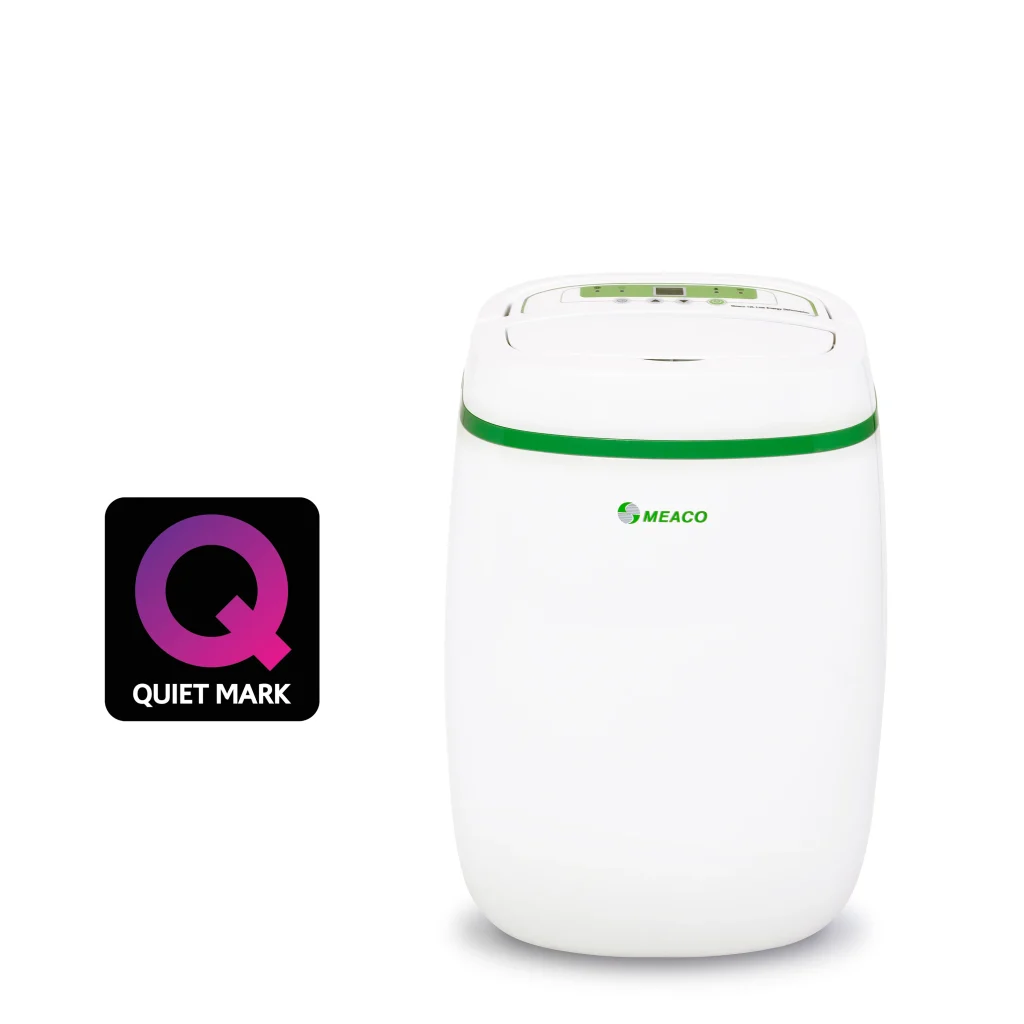
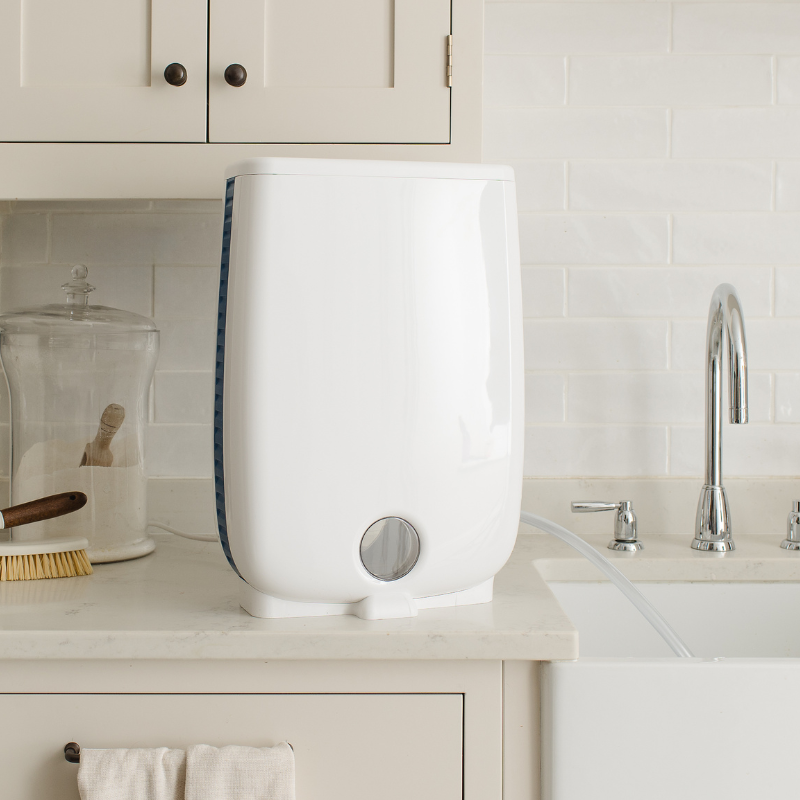

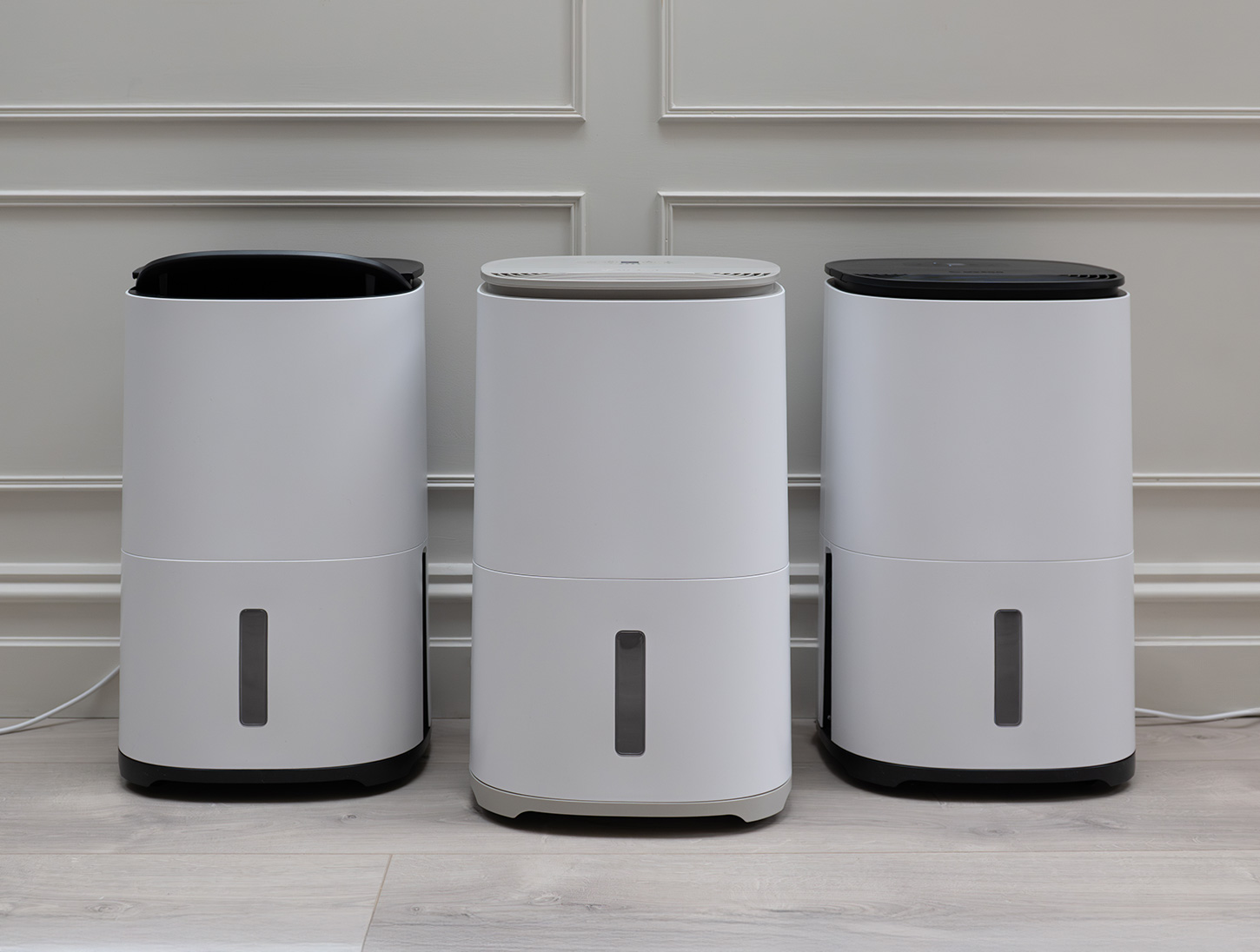
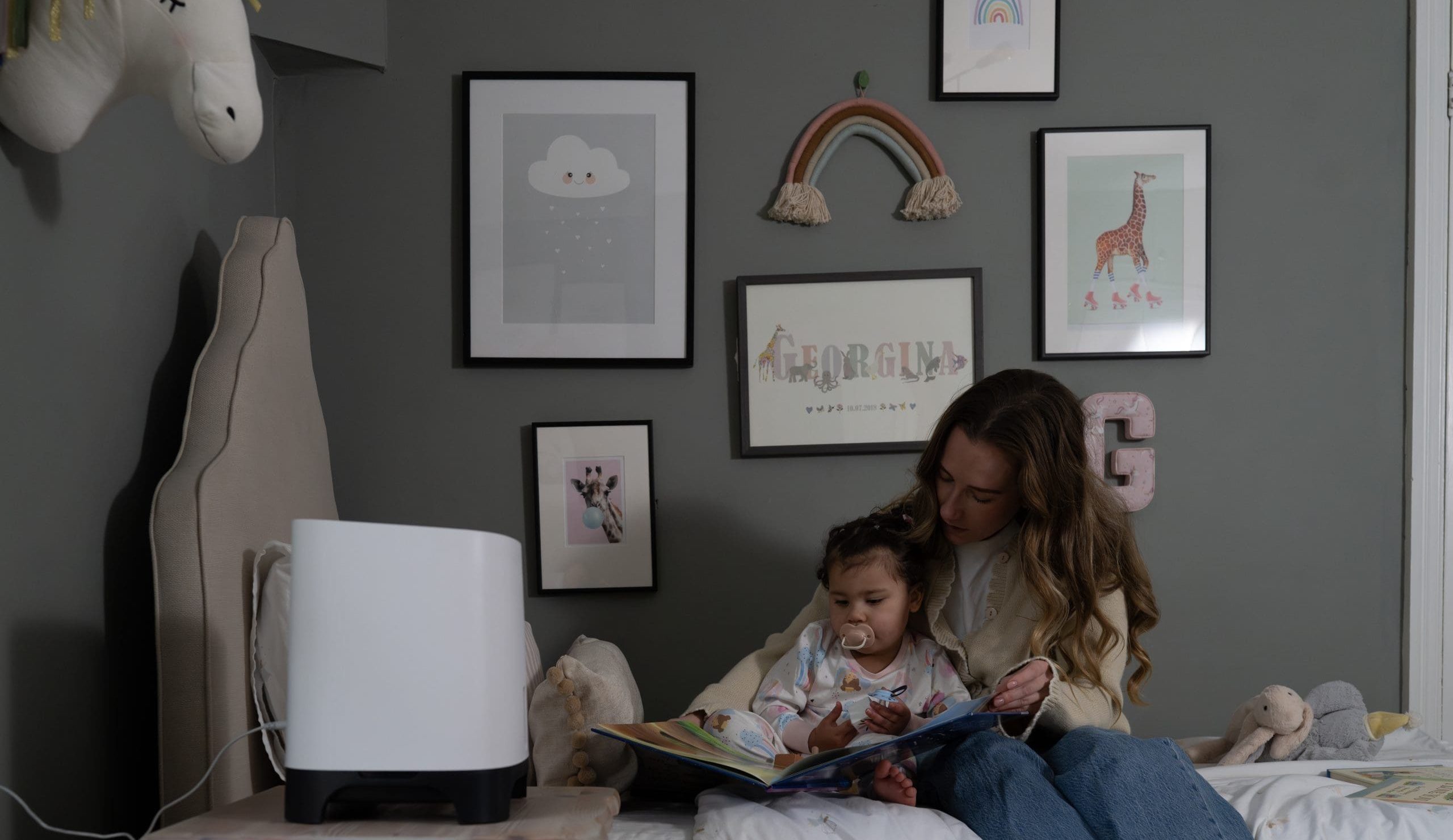



215 responses
Why do the doors have to be closed when running the dehumidifier?! Installed it in the kitchen first, which done a good job of getting rid of the condensation and now it’s in the living room (small 1 bed flat). I can understand windows being closed but why close the doors – need the science of it explained to me!!
Teresa,
They don’t need to be kept closed, in fact our advice is the opposite to help the damp air move towards the dehumidifier.
Chris
Hi Chris,
We have bad condensation up wall one in our bedroom, probably as a result of drying clothes in there over the years. We’re hoping to get the damage sorted, but clearly, there’s no point in doing that until we have something in place to prevent this from happening again.
We’re considering buying a tumble dryer for larger items such as sheets, towels, etc. We’ll probably still have to dry the clothes inside during the winter, so we’re wondering if the fact we’re drying considerably less would help, perhaps in conjunction with a dehumidifier. The rest of the house doesn’t tend to suffer too much, so I would expect it’s something we’ll leave in the room in which we’re drying clothes, unless you would recommend otherwise. It’s a medium-sized bedroom and three-bedroom house.
Many thanks!
Michael
Michael,
It sounds like you have a sensible conclusion with regards to your problems and a dehumidifier will help considerably. I would recommend either the Meaco 25L Ultra Low Energy (by far the best at drying laundry) or the Meaco 20L low Energy if you want to spend a little less money.
Chris
Hi again Chris
I’m still struggling despite following your instructions to let the blinds up. They’re always open during the day anyway.
My Meaco 20L, same one as last year is still having to be running 24/7. I have set it at 40 RH and it never switches off. I don’t understand it at all. What am I doing wrong or what am I not doing right. All doors are left open apart from the bathroom when in use and the kitchen when cooking. I never dry clothes on a radiator, always in the tumble dryer.
Many thanks for any help.
Helen,
If you are still getting condensation on the windows then this tells us that either the windows have a low surface temperature due to age or poor thermal performace (older double glazed windows or single glazed windows) or there is more humidity going into the air than the dehumidifier can take out. Is the problem just in one room, have you cleaned the filter on the dehumidifier, do you have older double glazing/single glazing? Try leaving windows open after using the kitchen/bathroom to alloow more exchange of air in those rooms.
Hi Chris,
I was wondering if you could assist me. Earlier this year (April) we moved into an old house (the middle section of the house is c300 years old, the front is 1960’s and the back is a 2010 extension). It’s a 5 bed (3 doubles, 2 singles). We use the 2010 extension as our main living area (main bedroom, its just the two of us just now so this is the only used bedroom, and living room) and the kitchen is in the 1960’s part of the house. The two bathrooms we use however are in the oldest part of the house. As we head into the winter, I am conscious to make sure we do all we can to reduce and hopefully prevent any damp related troubles (to the extent possible!) – i.e. there is nothing specific now but if we are careful we are much less likely to have any!. Could you advise the best dehumidifier to buy from you? Do you think we need the 20L or would a smaller one be sufficient? Your guidance would be very much appreciated!
Kind regards,
Fern
Fern,
It sounds like a lovely house but the middle section will have no damp course and the 1960s section will have less insulation than the 2010 section. I would definetely go for the Meaco 20L Low Energy as per your own selection.
Chris
I’m having a real problem here. I bought your 20 litre dehumidifier (the one with the green accent colour) which is supposed to dry up to a 5 bedroomed house. Mine is 3 bedroomed and I have had the machine running 24/7 since the beginning of November. The dehumidifier is on the landing with all doors apart from the bathroom door open. Because it’s such a beautiful day, I’ve pulled up all the Venetian blinds today to do a thorough clean and at the bottom of every single window apart from the bathroom, there is black mould on the upvc frames and on a couple of the actual glass of the windows, (new and double glazed) even growing to 4 or 5 inches up the frame.
This surely can’t be right. Please bear in mind that the dehumidifier has been running non stop since November. I’m thinking that the windows should be opened during the night and the dehumidifier switched off but my husband says we’re too old to sleep in cold rooms with windows open in winter.
Please, please could you help? I’m at my wits end with this. Many thanks.
Helen,
Thank you for your purchase and your message. It sounds like the blinds need to be lifted/open more so that the air can circulate rather than get trapped behind the blinds. If you have trickle vents on the windows i would keep them open too.
Hope this helps.
Chris
Hi brian, we have recently moved intoproperty and all the windows have condensation, how many dehumfiers will be require to remove mositure from all the house? Or is it best for all the windows to be replaced with tight sealead ones?
Mrs Khan,
To be honest it depends on how big the house is and how many people are living in the house. But a dehumidifier will sort the problem out for you.
Chris
Hi Chris, I have recently moved into a 3 bed terraced house and I am having problems around the window in my bedroom. The paint has started bubbling and there is white mould growing there also. I only moved in a week ago and there were no signs of this problem then. I have been leaving the window open slightly and this seems to be working throughout the day but then at night it gets worse again. Will a dehumidifier help??
Lauren
Lauren,
Absolutely, this is exactly what a dehumidifier will do for you. The MeacoDry ABC Range is the one to go for as they are by far and away the quietest available and noise is important around a bedroom. Please feel free to call the office on 01483 234900 if you would like to go through this in more detail.
Chris
Hi Chris
My problem is around my sons bedroom. One corner of the room has always suffered from mould, we have replastered, repointed outside, used mould proof paint – all helped but we still get some, plus a dampness on the ceiling in places, and wet window in winter – the roof isn’t leaking, so I know its condensation. Rest of the house is fine. What would you recommend ?
Kieran
Kieran,
Just put a dehumidifier on the landing and leave the internal doors open during the day. The damp air will migrate towards the dehumidifier and will be sorted.
Chris
Hi Chris,
I just moved into a 1940s 3 bed semi detached house. Once I moved in I noticed mould in every room by or under the windows. I have had specialists found and they have said he humidity level in the house pretty much all over is about 76%. We have cleaned most of the mould off but I want to obviously reduce the humidity levels in the house. I’ve had the heating on and windows open whenever I can but that hadn’t seemed to help. The windows in all rooms were all streaming with condensation in the mornings when we first moved in but that had reduced somewhat since I have had the heating on and windows open but not helped the humidity levels.
I can’t leave the heating and windows open everyday on during the night due to work and security and currently the boiler doesn’t turn on automatically. I have also been told I rising damp downstairs but another specialist thinks it may be a leak and the floor under the carpet in the living room is wet.
I am so stressed as to what to do as we are expecting a baby soon and I am very concerned about the humidity being very high when they are born etc. Please help, as I really don’t know what to do? Change windows, buy dehumidifiers for all the rooms, get a PIV room unit….
Dale,
Sorry to hear of your issues. I would separate them out and get a dehumidifier to deal with the bulk of the problem in the house. Put it somewhere central at the top or bottom of the stairs and then leave the internal doors open so that the damp air can migrate towards the dehumidifier.
Then have a good look and investigate and hopefully find the leak.
Good luck and if you want to contact me directly then please do so via the Contact page at http://www.meaco.com.
Chris
Hi Chris I’m now living in a private let and worry about condensation so rather than waiting for signs I bought a disposable dehumidifier and it is collecting some water is it ok to just keep using disposable ones from pound shop? Also I don’t open windows heating still not on I do hang washing in kitchen any advice be great as landlord has made me aware of condensation and mould so I got to be careful xx
Cherelle,
Condensation normally comes from bathing, showering, cooking, breathing and drying washing. If the windows are old then you are more likely to get more condensation. To be honest in a flat you are probably going to remove 2 – 3 litres per day and those disposable units will not extract that amount in a year, let alone a day. So I would probably save your money on those.
Make sure the landlord has given you proper extraction in the bathroom and kitchen.
regards
Chris